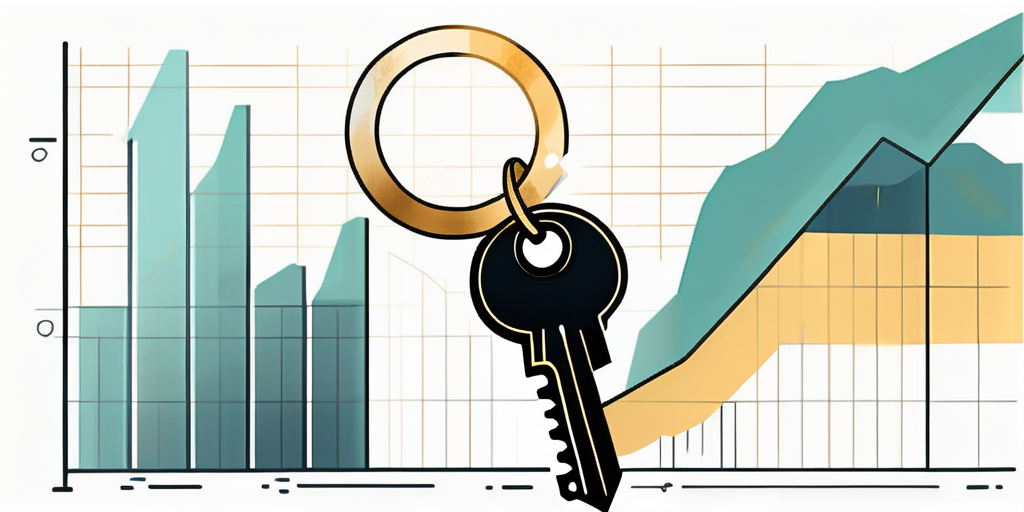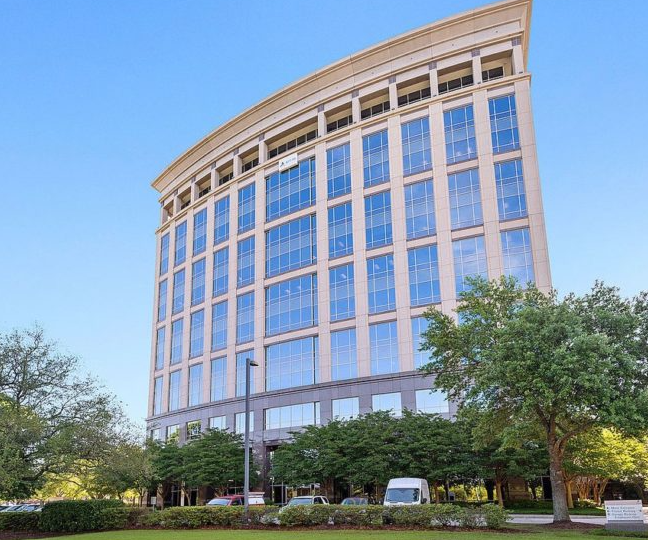Commercial brokers play a crucial role in the real estate industry, especially in a booming market like Louisiana. These professionals are responsible for facilitating transactions and negotiations between buyers and sellers of commercial properties. In this comprehensive analysis, we will delve into the role of a commercial broker, the Louisiana commercial real estate landscape, metrics for measuring their success, the journey to becoming a top broker, and the challenges and opportunities they face in this dynamic market. Bridgewater Realty Advisors is one of the top producing Commercial brokers in Louisiana.
Understanding the Role of a Commercial Broker
Commercial brokers act as intermediaries, representing the interests of both buyers and sellers. They assist clients in various aspects of the transaction process, including property valuation, marketing, negotiations, due diligence, and contract preparation. These professionals possess a deep understanding of local market conditions, zoning regulations, and industry trends.

When it comes to property valuation, commercial brokers go beyond simply looking at the physical attributes of a property. They take into account factors such as location, accessibility, and potential for future development. By conducting thorough market research and analysis, brokers are able to provide clients with accurate and realistic valuations, helping them make informed decisions.
Key Responsibilities of a Commercial Broker
One of the primary responsibilities of a commercial broker is to conduct market research and analysis to identify suitable properties for clients. They must have a keen eye for detail and a thorough understanding of their clients’ needs and preferences. Additionally, brokers are responsible for coordinating property showings, evaluating offers, and ensuring smooth transactions.
During property showings, commercial brokers play a crucial role in highlighting the unique features and potential of a property. They provide clients with detailed information about the property’s history, current market conditions, and any relevant zoning regulations. By effectively communicating this information, brokers help clients envision the possibilities and make well-informed decisions.
Essential Skills for Success in Commercial Brokerage
To excel in this industry, commercial brokers must possess a diverse range of skills. Strong communication and negotiation skills are vital for building solid client relationships and securing favorable deals. Additionally, brokers must have exceptional organizational abilities, attention to detail, and problem-solving skills to navigate the complexities of commercial real estate transactions.
Another crucial skill for commercial brokers is the ability to adapt to changing market conditions and industry trends. They must stay up-to-date with the latest developments in the market, such as new zoning regulations or emerging investment opportunities. By staying informed, brokers can provide clients with valuable insights and strategic advice, helping them make the most informed decisions for their commercial real estate ventures.
The Louisiana Commercial Real Estate Landscape
Louisiana boasts a thriving commercial real estate market, driven by its vibrant economy and strategic location. The state offers a diverse range of investment opportunities, including office buildings, industrial facilities, retail spaces, and multifamily properties.
Overview of the Louisiana Commercial Property Market
The demand for commercial properties in Louisiana remains robust, with steady growth in various sectors. Baton Rouge and New Orleans are key markets in the state, attracting both local and national investors. Industrial properties have experienced significant growth due to the expansion of the petrochemical and manufacturing industries.
Key Trends and Developments in Louisiana’s Real Estate
Louisiana’s commercial real estate market is influenced by several key trends and developments. The rise of e-commerce has sparked increased demand for logistics and distribution centers. Additionally, the state’s tourism industry has driven the growth of the hospitality sector, creating opportunities for hotel and resort developments.
One notable trend in Louisiana’s commercial real estate market is the increasing focus on sustainability and energy efficiency. With the state’s commitment to renewable energy sources, developers are incorporating green building practices into their projects. This includes the use of solar panels, energy-efficient lighting systems, and sustainable materials. These eco-friendly features not only reduce the environmental impact but also attract tenants who prioritize sustainability.
Another significant development in Louisiana’s commercial real estate landscape is the revitalization of historic properties. The state takes pride in its rich cultural heritage, and many old buildings are being repurposed for commercial use. These historic properties offer unique architectural charm and provide a sense of character that modern buildings often lack. By preserving and repurposing these structures, developers contribute to the preservation of Louisiana’s cultural identity while also meeting the demand for distinctive commercial spaces.
Metrics for Evaluating a Top-Producing Broker
Measuring the success of a commercial broker involves assessing various metrics that indicate their performance and effectiveness in the industry.

But what are these metrics exactly? Let’s dive deeper into the world of evaluating a top-producing broker and explore additional factors that play a significant role in determining their success.
Sales Volume and Transaction Value
The sales volume and transaction value are key indicators of a broker’s success. A top-producing broker consistently achieves high sales volumes and facilitates transactions with significant financial implications.
Imagine a broker who not only meets but exceeds expectations, consistently closing deals that leave a lasting impact on the market. These brokers possess an innate ability to identify lucrative opportunities and negotiate deals that result in impressive sales volumes and transaction values. Their expertise and market knowledge are unparalleled, allowing them to navigate complex transactions with ease.
Client Satisfaction and Retention Rates
Client satisfaction and retention rates are crucial measures of a broker’s ability to deliver exceptional service. A top broker builds long-term relationships with clients, ensuring their needs are met and exceeded.
Picture a broker who goes above and beyond to ensure client satisfaction. They take the time to understand their clients’ unique goals and objectives, tailoring their approach to meet their specific needs. These brokers are not just transaction-oriented; they are relationship-driven. Their commitment to client success is evident in their high retention rates, as clients continue to trust and rely on their expertise time and time again.
Furthermore, top brokers understand that client satisfaction extends beyond the closing of a deal. They provide ongoing support and guidance, acting as trusted advisors throughout the entire process. This level of dedication fosters long-term partnerships and solidifies their reputation as industry leaders.
The Journey to Becoming a Top Broker in Louisiana
Becoming a top broker in Louisiana requires a combination of education, experience, and dedication. Let’s explore the steps involved in this journey.
But what does it really take to become a top broker in the vibrant real estate market of Louisiana? It’s not just about obtaining a real estate license and fulfilling the necessary requirements. It’s about going above and beyond, constantly striving for excellence, and staying ahead of the game.
Education and Licensing Requirements
Obtaining a real estate license is indeed the first step towards becoming a commercial broker in Louisiana. Aspiring brokers must complete pre-licensing courses, pass a state exam, and fulfill continuing education requirements. However, it’s important to note that education doesn’t stop there.
A top broker understands the value of continuous learning and professional development. They attend industry conferences, seminars, and workshops to stay updated on the latest trends, market insights, and legal regulations. They invest time and effort in expanding their knowledge beyond the basic licensing requirements, ensuring they are equipped with the expertise needed to excel in their field.
Career Progression and Milestones
Advancement in the field of commercial brokerage is not a linear path. It is achieved through years of experience, building a strong network of clients and industry professionals, and exceptional performance. But what sets a top broker apart?
A top broker understands the importance of building long-lasting relationships with clients. They go beyond just closing deals; they strive to understand their clients’ needs and goals, providing personalized guidance and advice. They are trusted advisors, always putting their clients’ best interests first.
Attaining professional designations, such as Certified Commercial Investment Member (CCIM) or Society of Industrial and Office Realtors (SIOR), can also enhance a broker’s credibility and professional standing. These designations require additional education, experience, and a commitment to upholding the highest ethical standards in the industry. A top broker recognizes the value of these designations and actively pursues them to demonstrate their expertise and dedication to their clients.
So, while the journey to becoming a top broker in Louisiana may start with education and licensing requirements, it is the commitment to ongoing learning, exceptional client service, and a drive for professional growth that truly sets a broker apart in this competitive industry.
Challenges and Opportunities for Commercial Brokers in Louisiana
While the Louisiana commercial real estate market offers ample opportunities, brokers also face certain challenges. Adaptability and strategic planning are key to overcoming these hurdles and seizing emerging opportunities.

Market Challenges and How to Overcome Them
One of the challenges brokers face is fierce competition within the industry. To stand out, brokers must differentiate themselves by specializing in specific property types or market niches. Staying updated with industry trends and leveraging technology can also give brokers a competitive edge.
Emerging Opportunities in the Louisiana Commercial Property Market
Despite challenges, Louisiana’s commercial property market presents several emerging opportunities. The state’s growing renewable energy sector is driving demand for green commercial buildings. Furthermore, the rise of remote work has sparked an interest in mixed-use developments that blend office spaces and residential units.
In conclusion, the top producing commercial broker in Louisiana possesses a deep understanding of the role, excels in essential skills, and has a firm grasp of the local real estate landscape. By exceeding client expectations, adapting to market trends, and leveraging emerging opportunities, these brokers hold the keys to success in this dynamic market.

